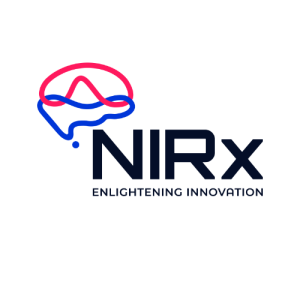Symposia
Thursday, July 25, 2024
SYMPOSIUM 1
Is Deep Learning the Answer for Understanding Human Cognitive Dynamics?
Thursday, July 25, 2024 10:30am-12pm Diamond I
Speakers and Authors: John Spencer: University of East Anglia; Brenden Lake: NYU; Raul Grieben: Ruhr-Universität Bochum; Gregor Schöner: Ruhr-Universität Bochum; Mariya Toneva: Max Planck Institute for Software Systems; Gina Kuperberg: Tufts University
Abstract
Deep Learning is a neural network approach where a network of multiple layers is trained to process complex data. Applications for deep learning include recognizing complex patterns in pictures, text, and sounds to, in some cases, produce insights into how human process information. Deep learning has garnered widescale interest, fostered by advances in, for instance, natural language processing and the release of innovative tools like Chat GPT. But does deep learning have implications for theory in the cognitive sciences; that is, is deep learning the answer for understanding human cognitive dynamics?
SYMPOSIUM 2
Who is responsible for collective action?
Thursday, July 25, 2024 10:30am-12pm Diamond II
Speakers: Lionel Wong: Massachusetts Institute of Technology; Casey Lewry: Princeton University; Sofia Bonicalzi: Roma Tre University; Tobias Gerstenberg: Stanford University
Authors: Casey Lewry: Princeton University; Tania Lombrozo: Princeton University; Shannon Wing: Massachusetts Institute of Technology; Sydney Levine: Allen Institute for AI; Josh Tenenbaum: MIT; Lionel Wong: Massachusetts Institute of Technology; Sofia Bonicalzi: Roma Tre University; Tobias Gerstenberg: Stanford University
Abstract
Reducing inequality, mitigating climate change, and responding to public health crises are large-scale goals that require the cooperation and coordination of many individuals. These goals cannot be achieved by one individual alone, and contributing is not always beneficial to each individual. And yet, individuals must contribute in order to make a difference. How do we hold individuals and groups responsible for collective action?
SYMPOSIUM 3
Higher cognition in large language models
Thursday, July 25, 2024 2:15pm-3:45pm Diamond I
Speakers and Authors: Nicholas Ichien: University of Pennsylvania; Sudeep Bhatia: University of Pennsylvania; Anna Ivanova: Georgia Institute of Technology; Taylor Webb: University of California, Los Angeles; Tom Griffiths: Princeton University ; Marcel Binz: Helmholtz Computational Health Center
Abstract
Large language models (LLMs) like OpenAI’s GPT-4 (OpenAI et al., 2023), or Google’s PaLM (Chowdhery et al., 2022) generate text responses to user-generated text prompts. In contrast to work that evaluates the extent to which model-generated text coheres with linguistic rules (i.e., formal competence) (Chomsky et al., 2023; Piantadosi, 2023), the present symposium discusses the work of cognitive scientists aimed at assessing the extent and manner in which LLMs show effective understanding, reasoning and decision making, capacities associated with human higher cognition (i.e., functional competence) (Binz & Schulz, 2023; Mahowald et al., 2023; Webb et al., 2023). Given both their expertise and their interest in clarifying the nature of human thinking, cognitive scientists are in a unique position both to carefully evaluate LLMs’ capacity for thought (Bhatia, 2023; Han et al., 2024; Mitchell, 2023) and to benefit from them as methodological and theoretical tools. This symposium will thus be of interest not only to cognitive scientists concerned with machine intelligence, but also to those looking to incorporate advances in artificial intelligence with their study of human intelligence.
Friday, July 26, 2024
SYMPOSIUM 4
How does the sensory-motor brain integrate and give rise to cognition and learning?
Friday, July 26, 2024 10:30am-12pm Diamond I
Speakers: Iliyana Trifonova: University of East Anglia; Jason A. Shaw: Yale University; Aaron Buss: University of Tennessee; Jelmer Borst: University of Groningen
Authors: Gregor Schöner: Ruhr-Universität Bochum; Iliyana Trifonova: University of East Anglia; John Spencer: University of East Anglia; Maria M Piñango: Yale University; Jason A. Shaw: Yale University; Michael C. Stern: Yale University; Aaron Buss: University of Tennessee; Larissa K Samuelson: University of East Anglia; Jelmer Borst: University of Groningen
Abstract
The brain evolved as a sensory-motor machine that drives behavior while being linked to the world through sensors. Human cognition abstracts from these sensory-motor roots but retains intimate ties. The brain’s structure reflects this history. How do neural processes at different distances from the sensory and motor surfaces integrate to achieve meaningful and grounded cognition? This is a challenge given the time-continuous and graded nature of sensory-motor processing, which enables continuous online updating. It is also a major challenge to understanding development and autonomous learning, in which the coupling across functional boundaries evolves under the influence of online activation patterns.
SYMPOSIUM 5
What Should I Do Now? Goal-Centric Outlooks on Learning, Exploration, and Communication
Friday, July 26, 2024 2:15pm-3:45pm Diamond I
Speakers: Cédric Colas: MIT; Junyi Chu: Harvard University; Gaia Molinaro: University of California, Berkeley; Robert Hawkins: University of Wisconsin-Madison
Authors: Cédric Colas: MIT; Junyi Chu: Harvard University; Gaia Molinaro: University of California, Berkeley; Robert Hawkins: University of Wisconsin-Madison
Abstract
Goals are a central pillar of everyday mental activity. From finding your way home to solving a puzzle and ordering food delivery, much of human action and cognition is goal-directed. Perhaps unsurprisingly, theories of goals are a central focus in the psychology of motivation (Elliott & Dweck, 1988), in social and personality psychology (Fishbach & Ferguson, 2007), as well as research aimed at understanding factors contributing to task achievement in educational and industrial settings (Ames & Ames, 1984; Locke & Latham, 2002). In this symposium, we highlight recent work emphasizing a goal-centric outlook on learning, exploration, and communication.
SYMPOSIUM 6
From Fungi to Thought: Exploring Cognition in Mushroom Foraging
Friday, July 26, 2024 2:15pm-3:45pm Diamond II
Speakers: Aliki Papa: University of Bergen; Andrea Bender: University of Bergen; Matteo Colombo: Tilburg University; Roman Abel: Ruhr University Bochum; Roope Kaaronen: University of Helsinki
Authors: Aliki Papa: University of Bergen; Andrea Bender: University of Bergen; Matteo Colombo: Tilburg University; Akiko Sawada: Kyoto University; Roman Abel: Ruhr University Bochum; Roope Kaaronen: University of Helsinki
Abstract
Tracing the evolutionary milestones of our species has been the focus of much exciting research. Yet, we are still unable to ‘locate’ the divergence point of our cognitive evolution, which has made us so unique in the animal kingdom (Tomasello & Rakoczy, 2003). We have identified a gap in our understanding, and that is the absence of a systematic exploration into the symbiotic relationship between Homo sapiens and fungi. This highly interdisciplinary symposium aims to address this oversight, emphasizing the important – yet underappreciated – role of fungi in cognitive contexts and challenge traditional views of cognition.
SYMPOSIUM 7
Advances in the Study of Event Cognition
Friday, July 26, 2024 4pm-5:30pm Diamond I
Speakers: Jeffrey M. Zacks: Washington University in Saint Louis; Dare Baldwin: University of Oregon; Sarah Hye-yeon Lee: University of Pennsylvania; Eva Wittenberg: Central European University
Authors: Sarah Hye-yeon Lee: University of Pennsylvania; Anna Papafragou: University of Pennsylvania; Jeffrey M. Zacks: Washington University in Saint Louis; Dare Baldwin: University of Oregon; Eva Wittenberg: Central European University
Abstract
Events are a fundamental part of human experience. Research on event cognition is rapidly developing and is revealing central aspects of how humans perceive, conceptualize, communicate about, and remember events. This symposium offers an interdisciplinary look at recent advances in the study of event cognition. The symposium brings together cognitive scientists from across continents, who are experts on the subject. The symposium contributors come from a variety of backgrounds and disciplines in developmental psychology, cognitive psychology, neuro-computational psychology, and linguistics. They combine a variety of innovative and integrative approaches and methodologies and study diverse populations across the lifespan and across languages. The overall goal of this symposium is to foster an interdisciplinary conversation on different aspects of event cognition.
SYMPOSIUM 8
Dynamics of memory search
Friday, July 26, 2024 4pm-5:30pm Diamond II
Speakers: Abhilasha Kumar: Bowdoin College
Authors: Abhilasha Kumar: Bowdoin College; Cynthia S.Q. Siew: National University of Singapore; Peter M. Todd: Indiana University, Bloomington; Yoed Kenett: Technion – Israel Institute of Technology
Abstract
Humans engage in a wide variety of search behaviors during their lifetime. These search behaviors may be external such as foraging for food in the wild, or searching for mates, or internal, such as searching for concepts in memory. Decades of work on search processes among humans has suggested that these two types of search behaviors share common characteristics and physiological mechanisms. Despite this progress, understanding the dynamics of internal search is an ongoing challenge in the field.
Saturday, July 27, 2024
SYMPOSIUM 9
Computational Social Cognition: Approaches and challenges
Saturday, July 27, 2024 10:30am-12pm Diamond I
Speakers: Ismail Guennouni: University College London
Authors: Ismail Guennouni: University College London; Joseph M Barnby: Royal Holloway, University of London; Julian Jara-Ettinger: Yale University; Rebecca Saxe: MIT; Maarten Speekenbrink: University College London
Abstract
Predicting the actions and reactions of others is crucial to suc- cessful social interaction. When deciding whether to bluff in a game of poker, we consider the chances that the other players will fold or continue to play and unmask our bluff. When deciding whether to tell our boss that their plans are likely to have adverse effects, we consider a range of reac- tions, from being grateful for our honesty to being dismissed out of spite. Such predictions are highly uncertain and com- plex, not least because the other’s (re)actions usually result from them making equally complex and uncertain inferences about us. Nevertheless, we are often remarkably successful – although sometimes utterly wrong – in our social inferences. How do we explain these successes and failures?
SYMPOSIUM 10
The Fundamental Flexibility of Abstract Words
Saturday, July 27, 2024 3pm-4:30pm Diamond I
Speakers: Joanna Rączaszek-Leonardi: University of Warsaw; Anna Borghi: Sapienza University of Rome; Dedre Gentner: Northwestern University; Luca Tummolini: National Research Council of Italy; Nick Chater: University of Warwick
Authors: Joanna Rączaszek-Leonardi: University of Warsaw; Anna Borghi: Sapienza University of Rome; Nick Chater: University of Warwick; Morten H. Christiansen: Aarhus University; Chiara Fini: Sapienza University of Rome; Dedre Gentner: Northwestern University; Angelo Mattia Gervasi: Sapienza University of Rome; Daniel C King: Northwestern University; Francesco Mannella: National Research Council; Claudia Mazzuca: Sapienza University of Rome; Luca Tummolini: National Research Council of Italy; Julian Zubek: University of Warsaw
Abstract
In this Symposium we link different perspectives and traditions of research on language and concepts in the cognitive sciences to better understand the process of abstraction from the social-interactive standpoint. In contrast to the usual benefits of abstraction – such as the ability to categorize and generalize – we underscore the possibility of abstract concepts and words to remain underspecified, “open to the context, the suggestions of others” (Borghi, 2023) or to processes of real-time negotiations (Christiansen & Chater, 2022). This is enabled by their largely non-perceptual rela-tional character (Gentner, 2005) and by the fact that they arise in cognitive systems continually embedded and active in their environments (Cisek 1999; Mannella & Tummolini 2023).
SYMPOSIUM 11
Towards a movement science of communication
Saturday, July 27, 2024 3pm-4:30pm Diamond II
Speakers and Authors: Šárka Kadavá: Leibniz Center General Linguistics; Lara Pearson: Max Planck Institute for Empirical Aesthetics; James Trujillo: University of Amsterdam; Wim Pouw: Radboud University
Abstract
“To communicate is to move. There is no way around that. If we pick up comprehensive handbooks or introductory texts in movement science (Hong and Bartlett (2008)) we see that there is very rich knowledge and tractable mathematical models about different aspects of movements. Yet, we find no chapter on communicative movements. While the field of speech motor control is a developed area on its own (Parrell and Lammert (2019)), there is no movement science of communication proper, which would include whole-body-, hand-gestural-, signed-, and inter-bodily actions.”
Thank you to our Sponsors and Exhibitors!
![]()
The Cognitive Science Society is pleased to announce the establishment of the CogSci Grove which aims to mobilise cognitive scientists to offset carbon emissions associated with their professional activities.




